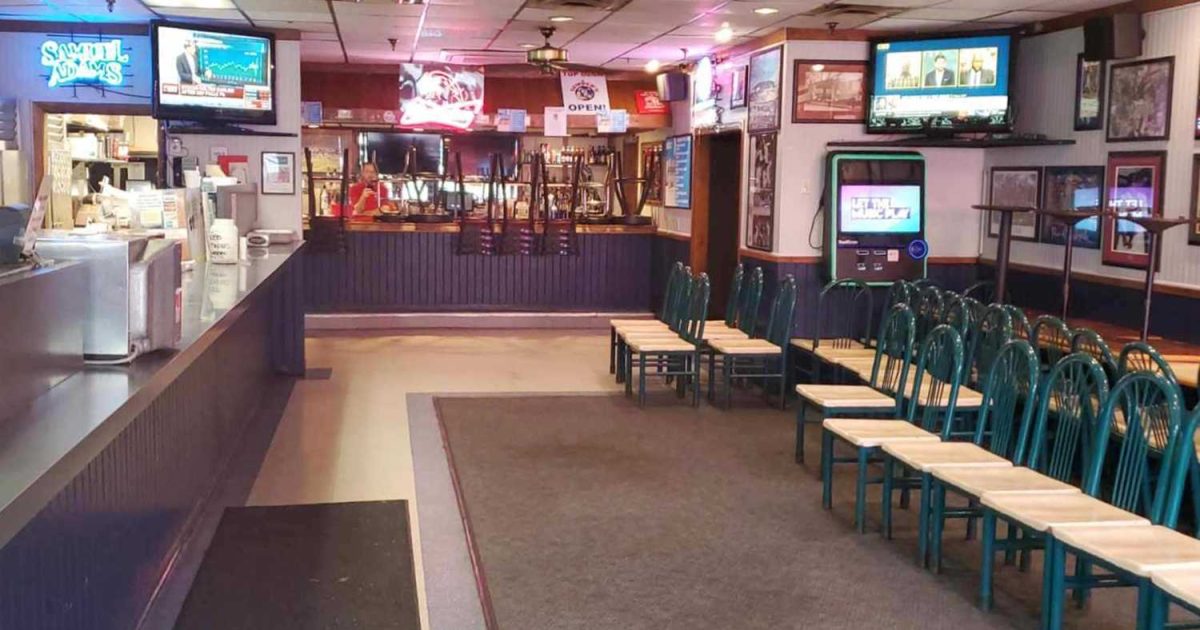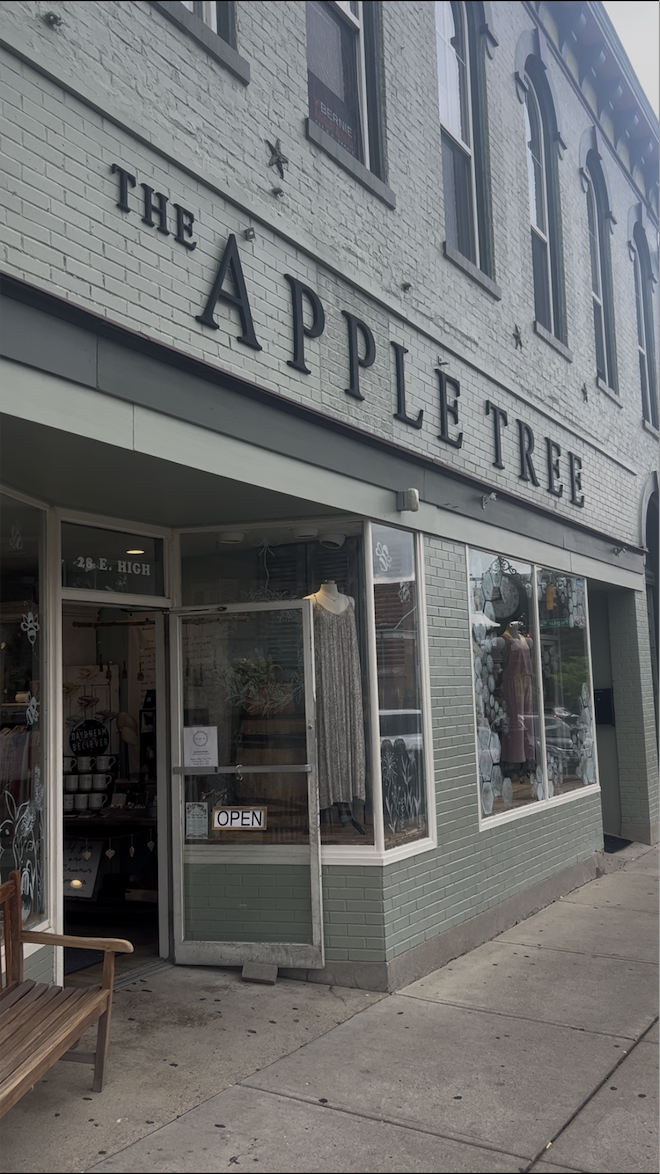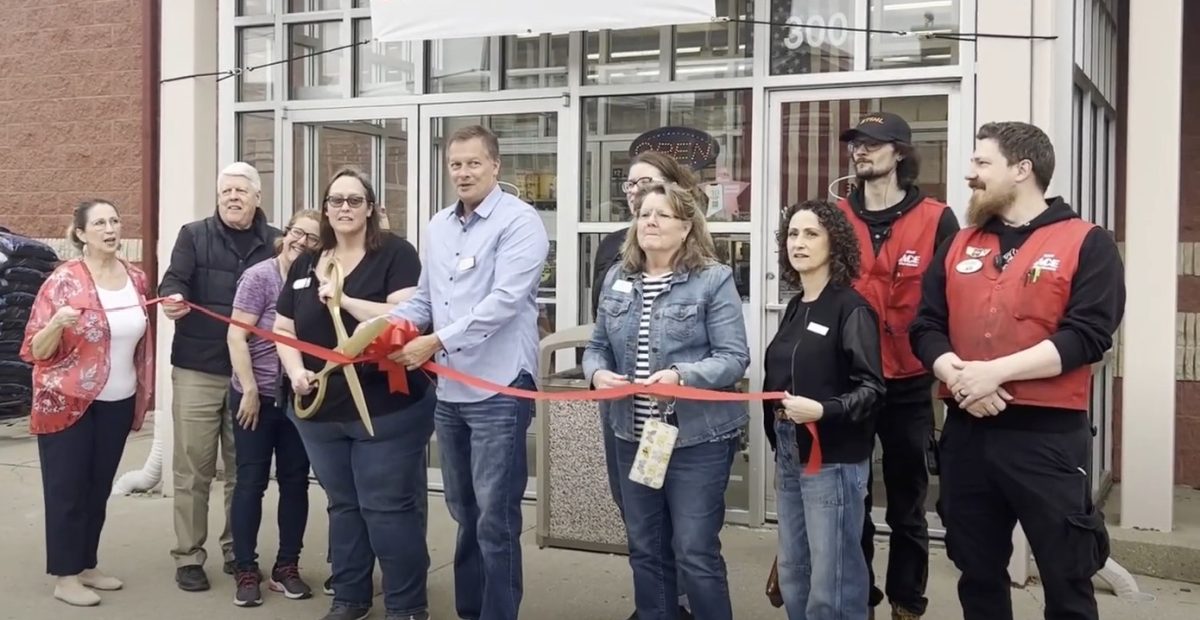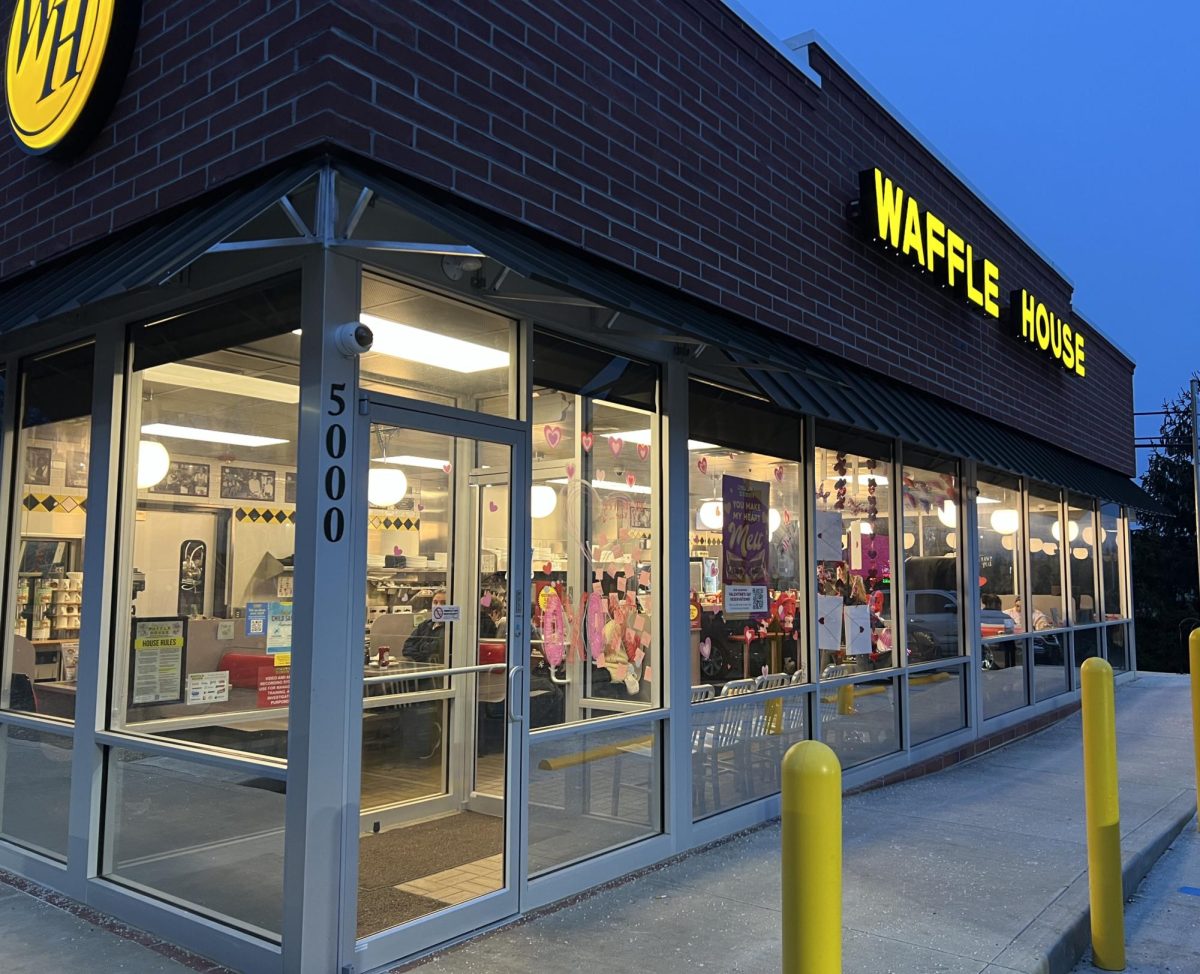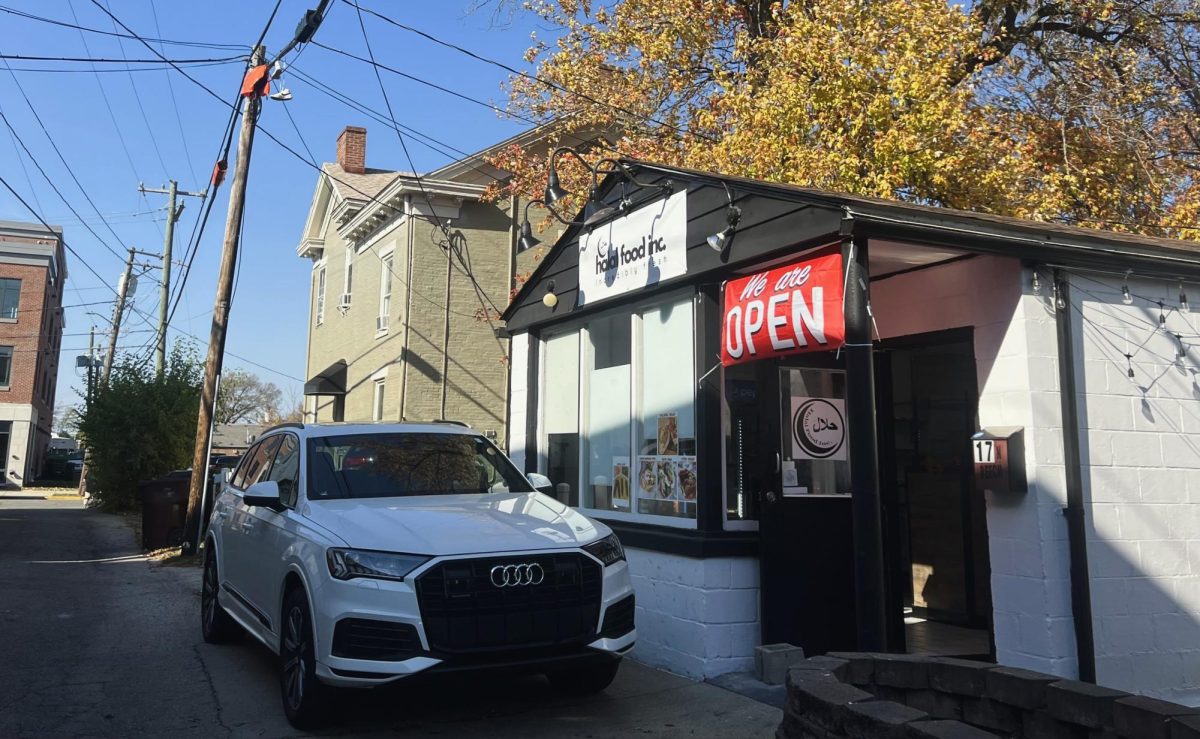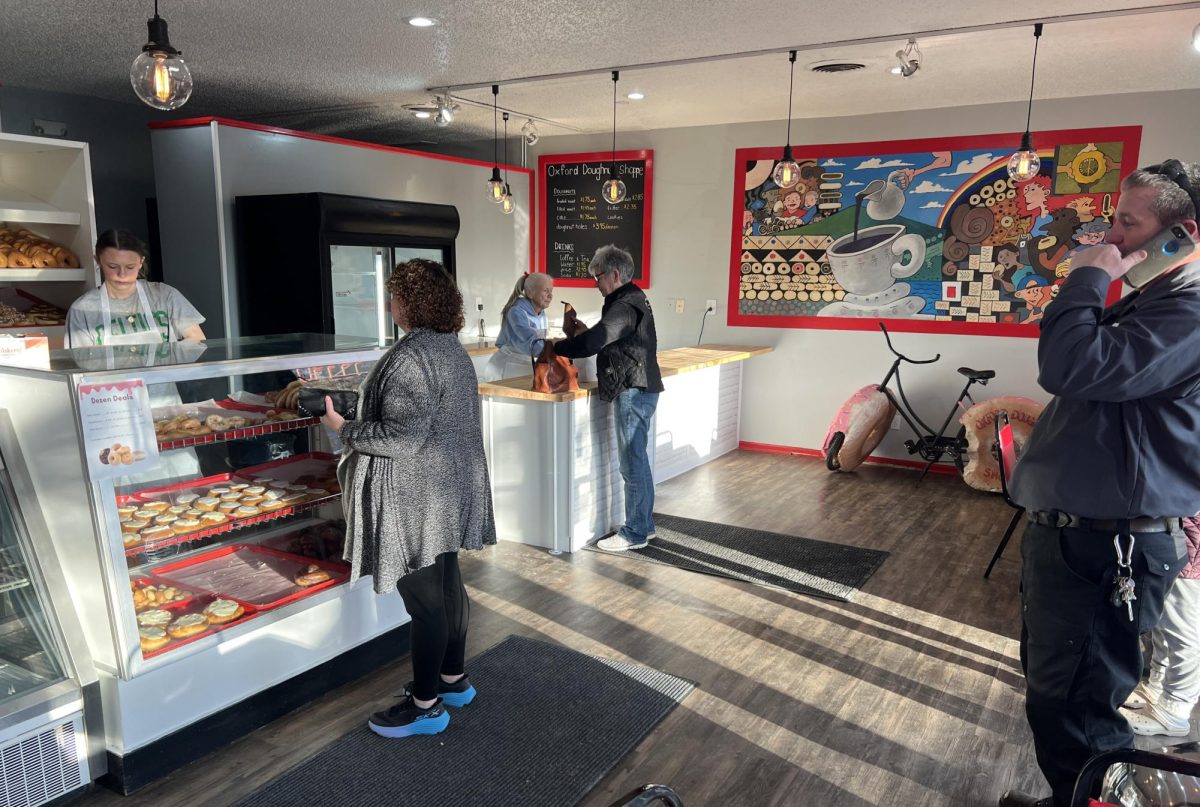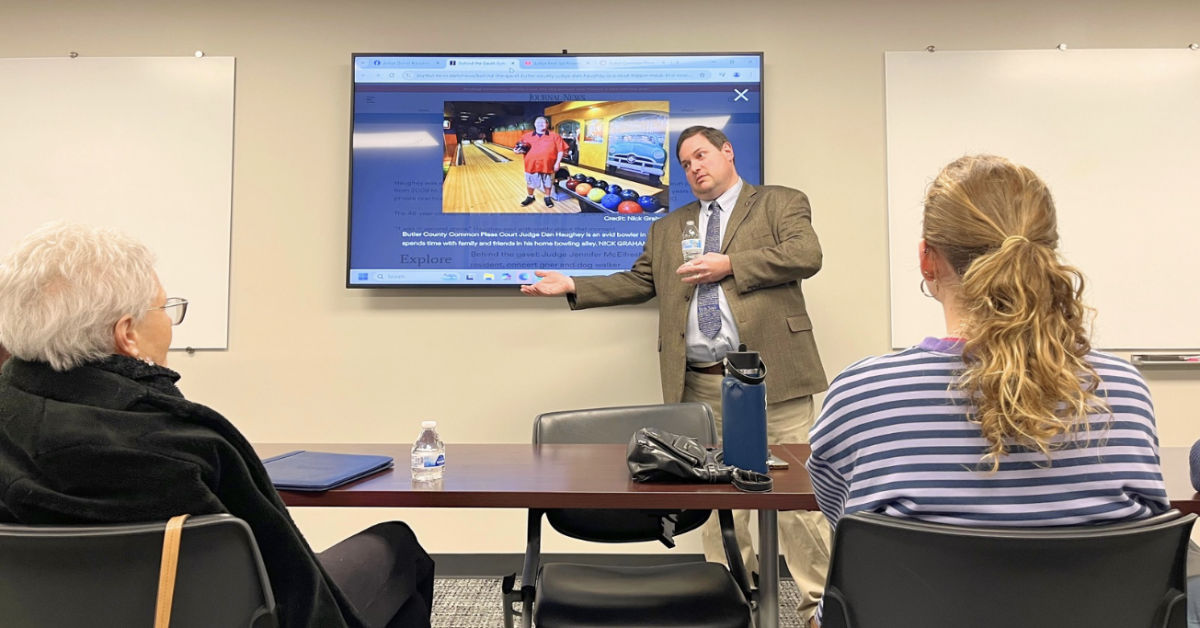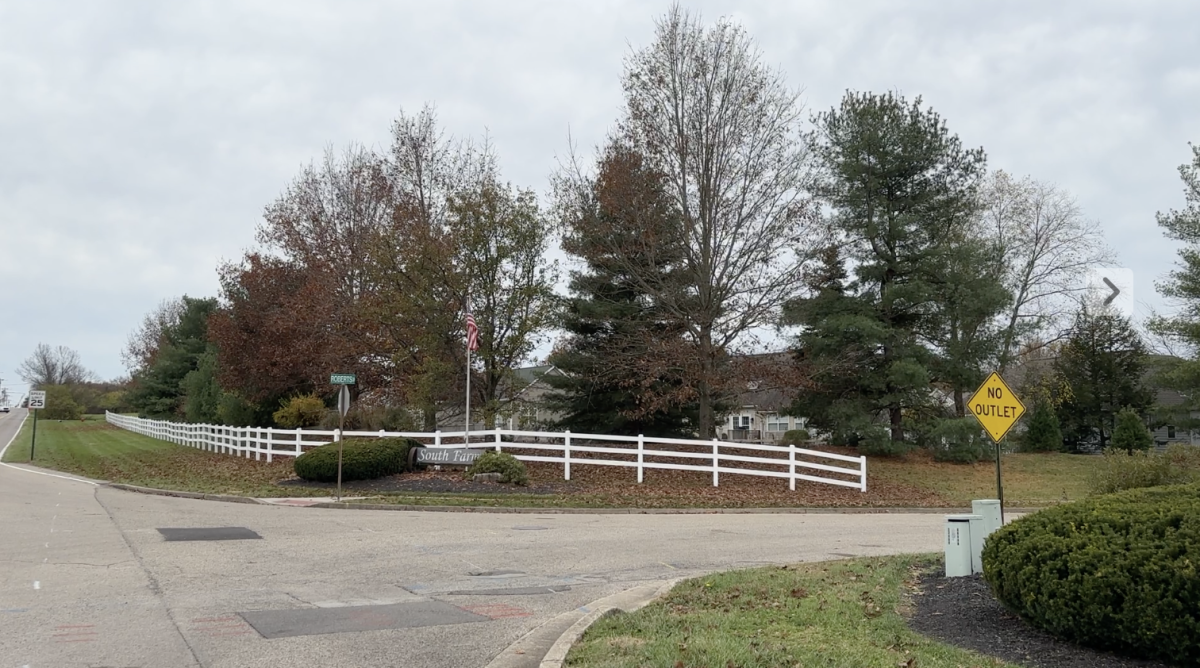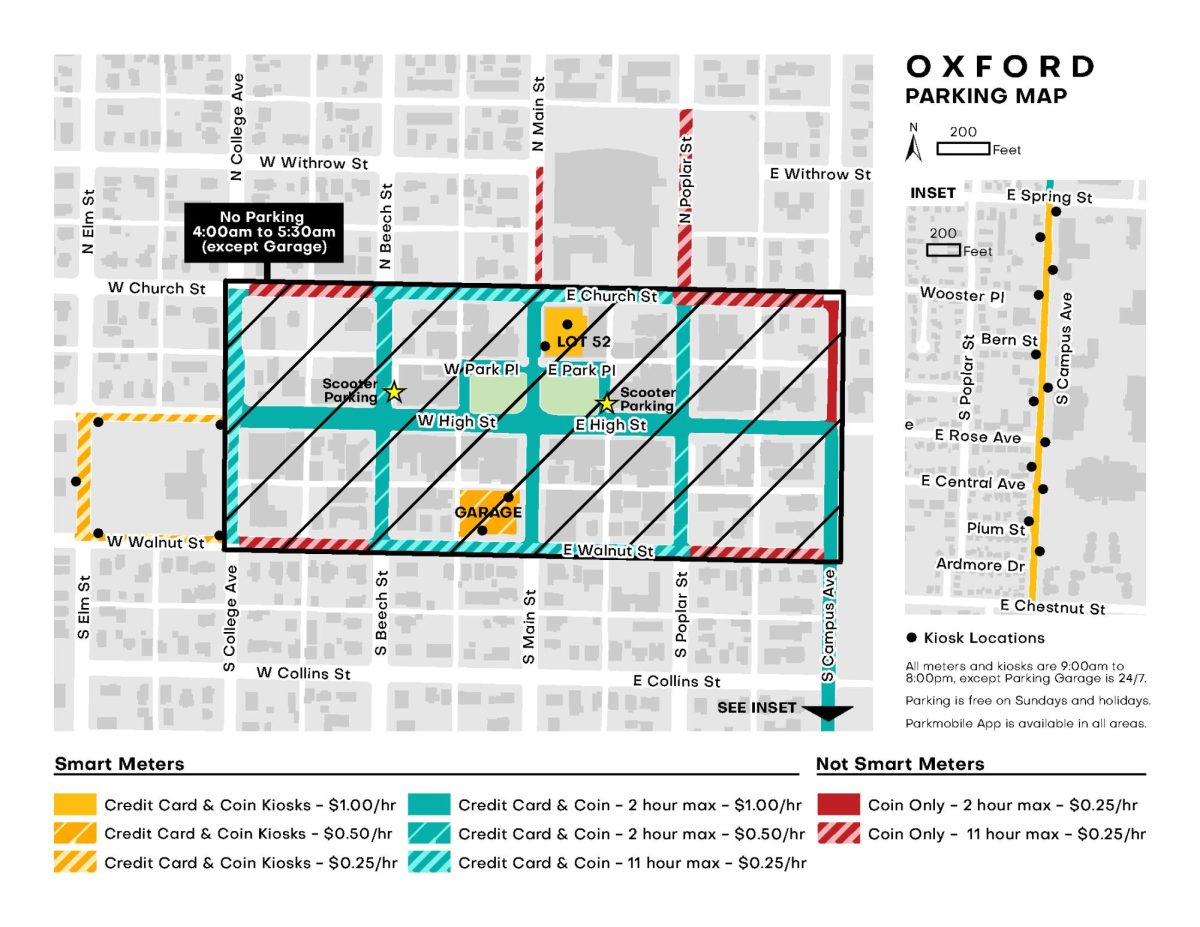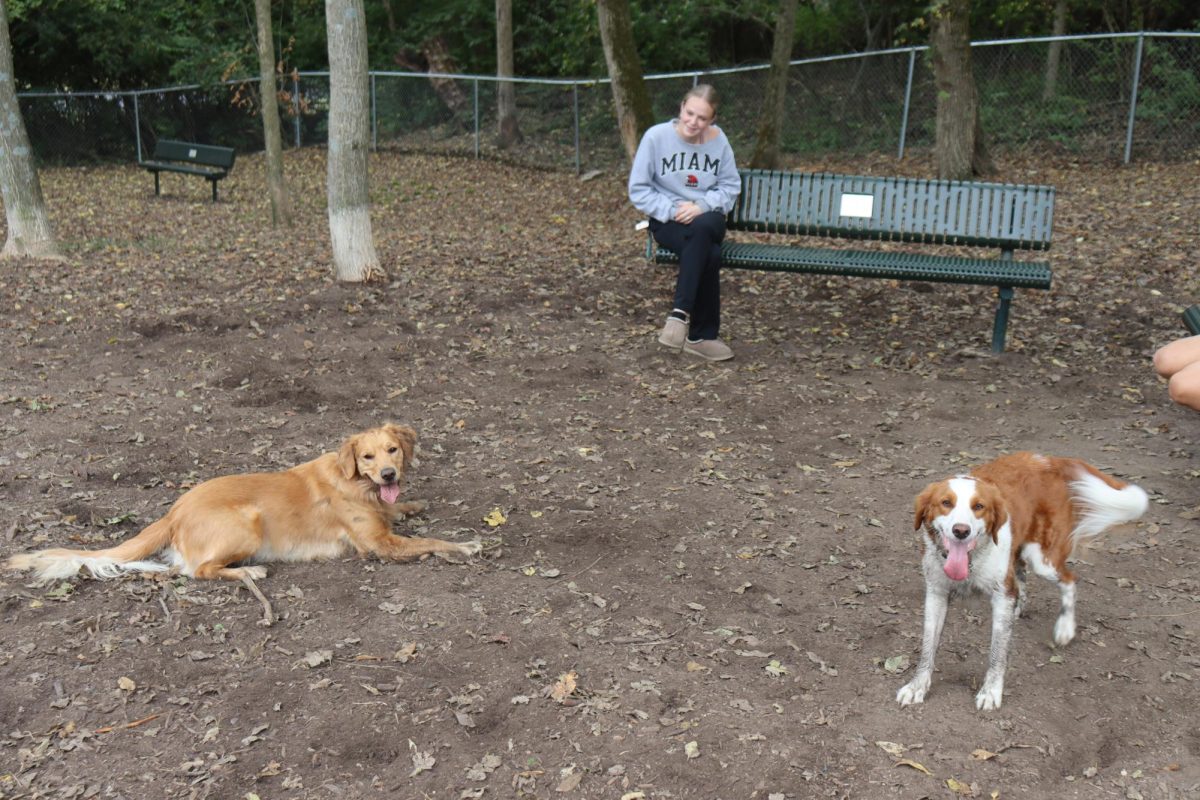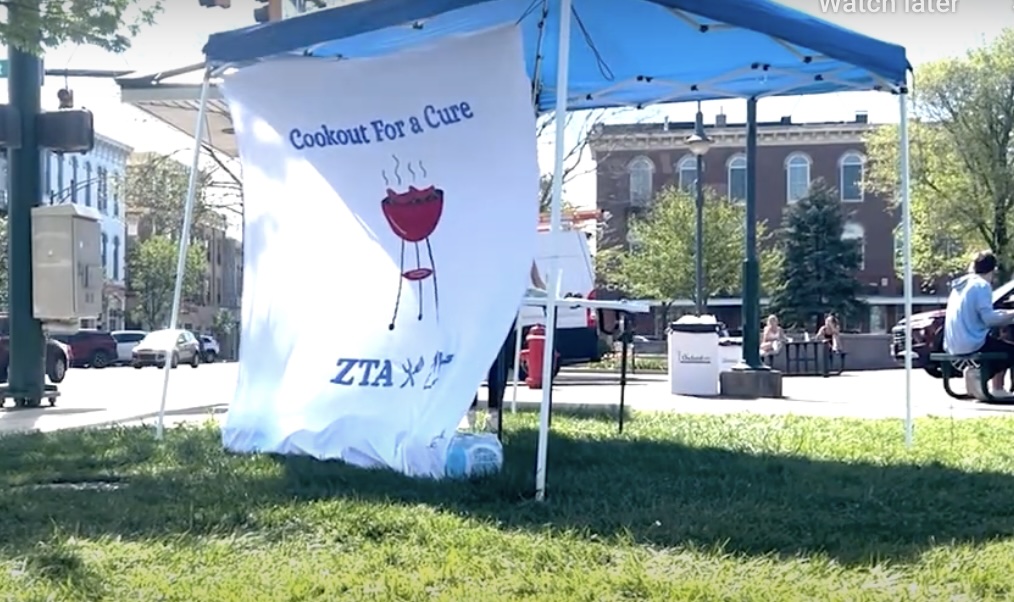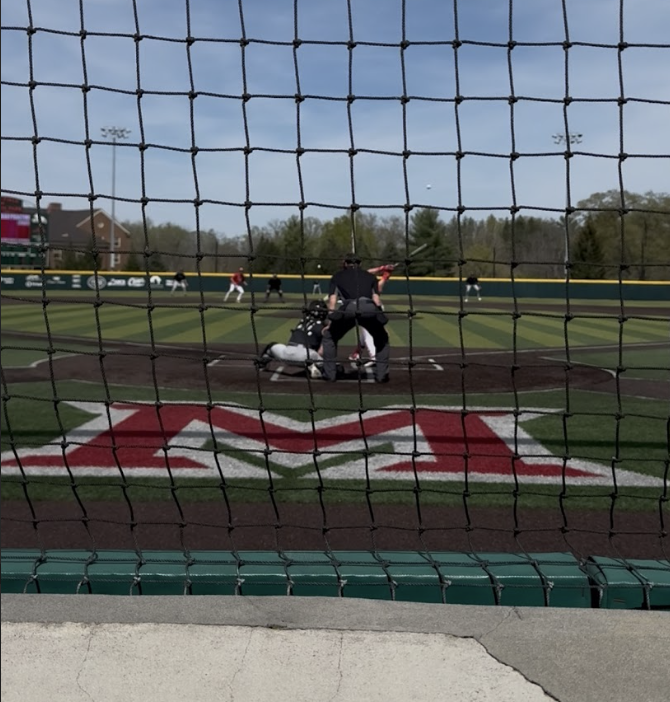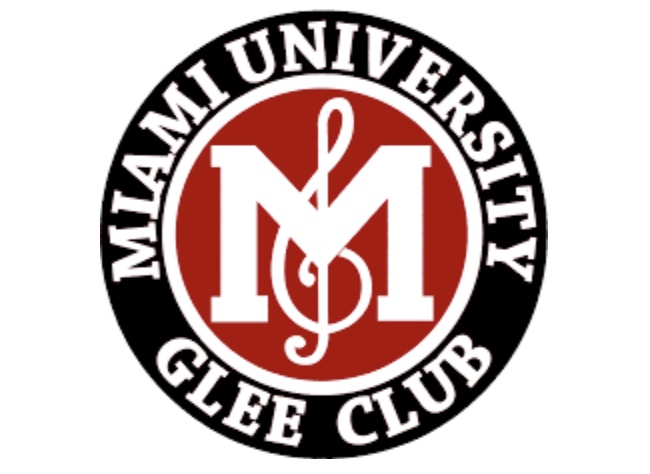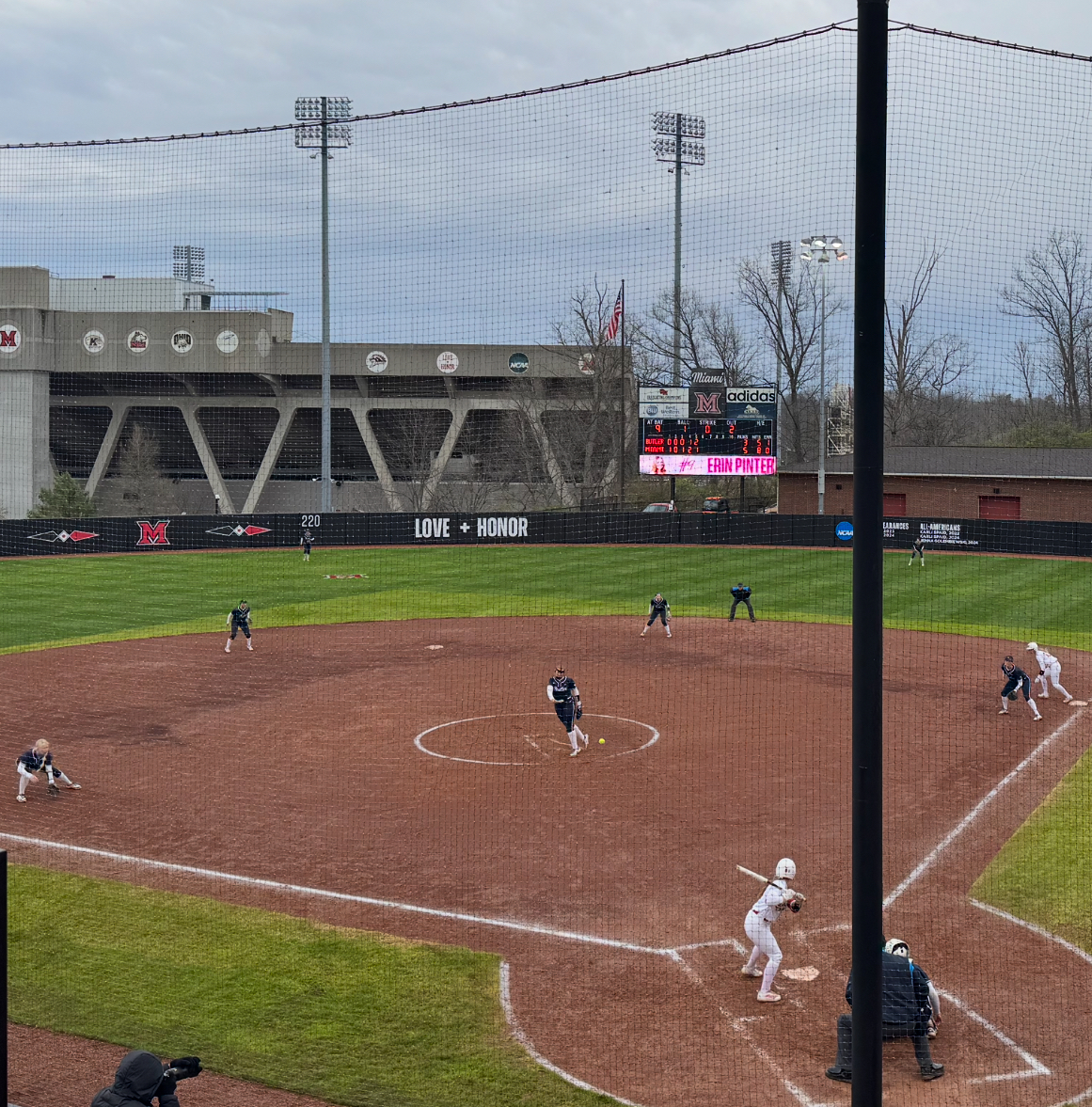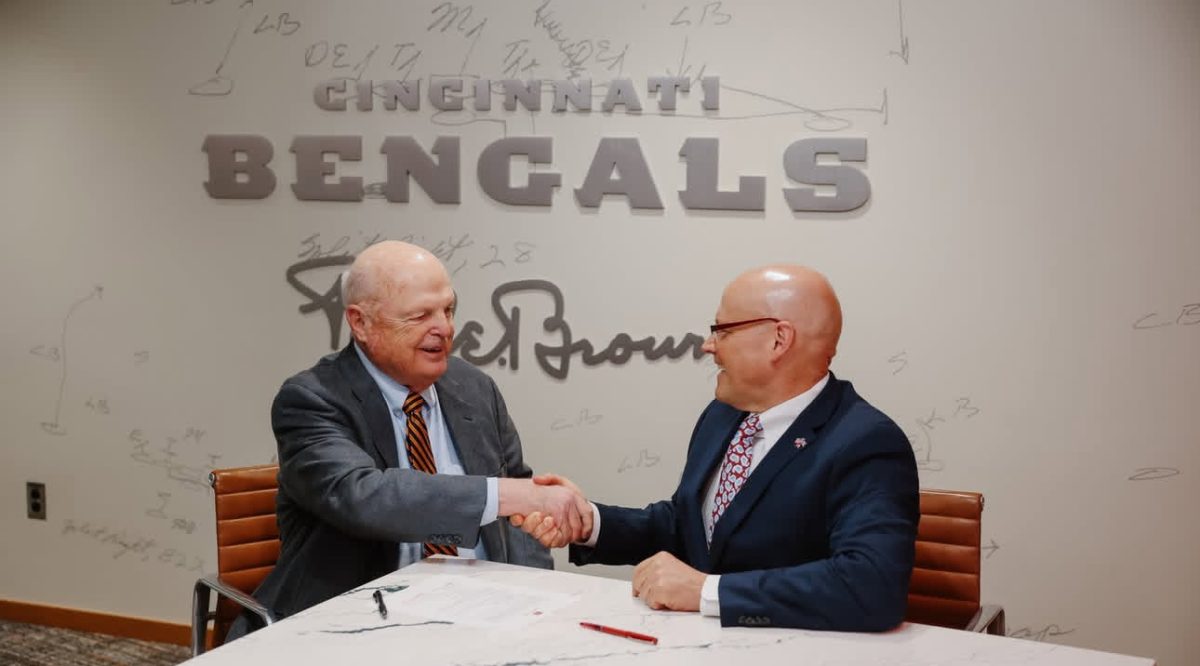Two weeks ago people were being urged to wash their hands and cough into their elbows; then fans were ordered to stay away from athletic events; then the games were canceled; a few days later Ohio Governor Mike DeWine advised schools and universities to move lessons from the classrooms to the internet; people were told to avoid crowds larger than 100 people, then 50 then 10; a week ago bars and restaurants were ordered to close; soon followed by bowling alleys, hair salons, barbershops and tattoo parlors.
This past Tuesday, McCullough-Hyde Hospital in Oxford reported its first positive case of the coronavirus.
Life has changed very fast in Oxford and all over the nation during the past two weeks. The last thing Mayor Mike Smith said before adjourning the city council’s Tuesday night meeting was that no cases of the virus had been found in the city. By early the next morning, news of the positive case at the hospital was announced.
Spring Break, when most students leave town, had been scheduled to begin after classes on Friday, March 20, following the annual revelry of “Green Beer Day,” on Thursday, March 19. Instead, the bars all closed, “Green Beer Day” was canceled and students began heading home a week early.
The Ohio legislature passed the Families First CoronaVirus Response Act late Wednesday, to provide paid sick leave and free coronavirus testing. The legislation also expands food assistance and unemployment benefits. The law also provides additional protections for health care workers. Specifically, the paid sick leave will be provided to employees impacted directly by the coronavirus.
Over 10,000 cases of the virus have now been reported in the United States, as of Thursday. In Ohio, there have been 33 hospitalizations from the virus with ages ranging from 2-years-old to 91-years-old. Forty-three confirmed cases in Ohio are female, 76 cases are male and, as of Thursday night, zero deaths from the virus had been reported in the state.
Unprecedented action taken by the governor
Tuesday, March 17, was to have been the Ohio Primary, but in an unprecedented action, DeWine ordered Election Day postponed until June. When a court in Columbus refused to issue a stay for the election, DeWine had Dr. Amy Acton, director of the Ohio Department of Health declare a public health emergency and close down all the polling stations. DeWine explained he could not tell people to stay inside while at the same time urging them to go out and vote.
Voting will be moved to June 2 with an extension on mail-in/absentee voting.
“We are entering a more difficult time where more and more of our citizens could become ill but we need to allow those citizens to vote,” said DeWine.
DeWine has been holding daily briefings with Dr. Acton and other officials on Ohio’s efforts against the virus.
He announced on Thursday, March 19, that the grocery store supply chain is doing well, “so you don’t have to think the groceries are going to run out.” But both Kroger and Walmart have adjusted their hours to allow time to restock the shelves and sanitize the stores.
On Wednesday, March 18, DeWine announced all hair and nail salons, barbershops, tattoo parlors were to close at the end of business that day.
DeWine also announced that employers should be taking the temperature of all employees every day before they begin work. They are asked to be very aggressive in regards to cleaning surfaces and having soap, water and hand sanitizer available in all places of business.
“It is not perfect but it is one way to screen individuals out,” said DeWine.
The governor also addressed the rumors of the Ohio National Guard being deployed. He explained not everything the National Guard does has to do with fighting. Instead, The National Guard will be helping out at hospitals, erecting tents medical personnel will use to evaluate if patients should proceed into the ER, or if the patient can be cared for outside of the hospital. Food banks have also requested assistance for the distribution of food to those who may be stuck at home. “When the National Guard is going to do something you will know about it, “ said DeWine.
DeWine also noted that citizens doing volunteer work should still observe social distancing with no more than 10 people in a room.
The Animal Friends Humane Society, in Hamilton, sent a message out to its volunteers saying that the shelter is closed from the public with the exceptions of services such as fostering, adopting, pet food pantry assistance, claiming lost pets and dropping off stray dogs. If you want to come into the shelter, you have to call and make an appointment. The shelter is no longer open for the public to just walk in.
“We have reached out to a few core volunteers that are allowed to enter the building,” Outreach Coordinator Megan Niehaus said in the message. “At this time, if you have not been reached out to, we ask that you do not come to volunteer.”
Availability of medical supplies and tests still a concern
Acton, the director of the Ohio Department of Health, stated at a press briefing on March 18 that the swabs used to collect samples for COVID-19 are running low at facilities around the state. Test kits used to determine if patients actually have the coronavirus are predicted to remain limited. However, the vast majority of citizens do not need to get tested for the virus, Acton said.
Tamera McBride, the chief of health preparedness at the Ohio Department of Health, said Ohio has received a full allocation of supplies from the strategic national stockpile which is based on the population size. However, McBride said the full allocation is not enough.
It is recommended to act like you have the virus if you are experiencing symptoms such as fever and coughing. Most people will be able to quarantine themselves and remain at home. Patients should call their doctor if they begin to experience difficulty breathing.
Coronavirus tests should be reserved for those who are sickest. The tests should also be done on patients in the hospital so that healthcare workers will be able to wear the correct personal protection equipment. This system will allow health care workers to stop the spread of the virus in the hospital once they know who is infected.
“With or without a test the virus is here, it lives among us and we are at war with it,” said DeWine at his Wednesday briefing.
Acton stated that 80% of the citizens will be okay and should not be afraid if they cannot get a test. She also said a recent study showed out of 508 cases of the virus, 38% of hospitalizations involved patients under 55 years old.
On Thursday, Acton said healthy individuals should consider donating blood through the Red Cross or through a local blood center, as this blood will be needed due to the cancellations of blood donations because of the virus.
Ohio has 181 deputy registrar BMV locations. Only five of these will remain open and the rest will be closed, to avoid people crowding together. DeWine said the five locations are remaining open because they are essential for commercial driver licenses and renewals. All other services will be online, through mail or paused. Fifty-two driver testing stations will be closed around the state. DeWine said he wants legislation to be passed to grant a grace period for people who cannot renew their licenses. The police departments have been notified to not give tickets for those with expired licenses.
It will be up to libraries to decide if they will close or if they are able to offer their services online. Oxford’s Lane Library is closed, as are Miami’s libraries, but are offering some online services.
Due to the growing number of cases in Ohio and the country, the governor asked patients and medical personnel to postpone all elective surgeries. Officials are worried about having enough beds, ventilators and personal protective equipment such as gloves and masks when cases peak. This concern comes from issues other countries such as Italy and China have encountered, he said.
Andy Thomas, the chief clinical officer at the Ohio State University Wexner Medical Center, said the guidelines for surgeries that will be performed are if the procedure is life-saving, preserves an organ or limb, prevents the progression of a disease or reduces the risk of severe symptoms.
“Sometimes this truth is gonna be a bit scary,” Dr. Acton said.
At the Tuesday press briefing, Acton said that if no precautions at all were taken against the spread of the virus it is possible that 2.2 million Americans could die. However, with the early targeted interventions that have taken place, it is estimated that deaths will be half of that and the hospitalization surge will be cut by two thirds, she said.
Veterinarians and dentists have already donated personal protection equipment stated Acton. Acton also commended restaurants are able to donate gloves to hospitals that need this equipment to help the most vulnerable.
Ohio also received the first $15 million allocated to the state from federal public health funding. Acton said her team decided that $10 million of those funds will go to local partners such as the 113 health departments in Ohio that investigate cases, work their containment efforts and employ mitigation efforts.
Mike Abrams, CEO and president of the Ohio Hospital Association, laid out some options that citizens may see as the number of cases reaches a peak. Nursing homes may have a dedicated wing to house non-infectious patients, opening up traditional hospital beds for the critically ill. Some hospitals are in talks with local hotels to bring in non-infectious patients on a dedicated floor to free up space in hospitals. Consideration is also being given to reopen closed hospitals. Abrams said there are 33 critical-access hospitals in the state that have only 25 beds and limit stays to 96 hours. However, those limits have been relaxed to allow for patients to stay longer as another measure to allow for critically ill patients.
The governor also commented that there has been a request for childcare services at the hospitals. It also alluded that childcare arrangements should begin to be made for when daycares close.
Dealing with the economic impacts
Lt. Governor Jon Husted said Wednesday that there have been 78,000 requests for unemployment compensation in the state. Two weeks ago, there were only 6,500 requests. However, some businesses are hiring because they are in need such as Amazon.
On Thursday, Husted noted there is no need for people to make large withdrawals from their banks. He said the banking system is safe and can be trusted with people’s money. He also stated after a call with the president, the government is working with private sectors to make more ventilators, masks and tests.
Miami University has kept students informed with the current situation by sending out email updates regularly. The dean of students sent out a message saying that many campus services will still be available virtually, including the Rinella Learning Center, the Howe Writing Center, and the University Libraries.
Additionally, students can contact the H.O.P.E. (Help Over the Phone Everywhere) line if they need mental health counseling. Immediate support and crisis intervention is available.

The university is encouraging students to leave the campus if they are able as soon as possible. Because of the statewide emergency declaration, residence halls will be closing on March 21. If they are unable to go home, students should have filled out an exemption form by March 18. Even if students are approved to stay on campus through the end of the semester, they are still expected to move out of their current rooms by Saturday, March 21. The university will move them into fewer residence halls over spring break for the duration of the semester.
The university has also let students know that they should not return to campus even if they left possessions in their dorm rooms. “Do not return until you have been directed to do so,” said Kimberly Moore, associate vice president and dean of students, in a message to all on-campus residents. “In the coming weeks, we will provide guidance for students who have already left to retrieve belongings and finish moving out.”
Students will be eligible for partial refunds for room and board, even if students still have belongings in the rooms.
Access to university facilities and services will be extremely limited. The Rec and Goggin are currently closed. Additionally, library hours are being reduced. The Armstrong Student Center will only be open for to-go food service and will no longer be a place where students can congregate. Dining services will all be to-go and seating areas will be roped off. Many student employees’ jobs will be canceled for the rest of the semester. Students should not be expected to work at this time.
“Again, we strongly urge you to leave campus now while you are able to do so,” Moore said in the message. “We know that this is not the way anyone wanted the semester to go, and many of you are feeling distressed. However, our community’s safety and well-being is our top priority,” she said.


